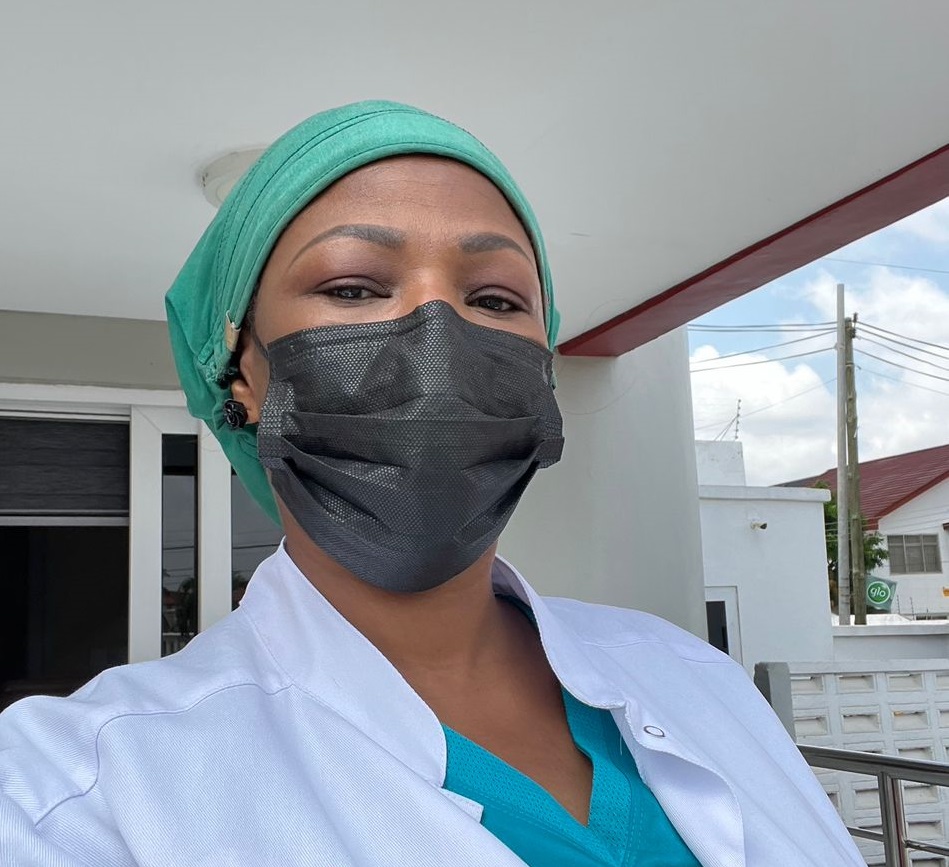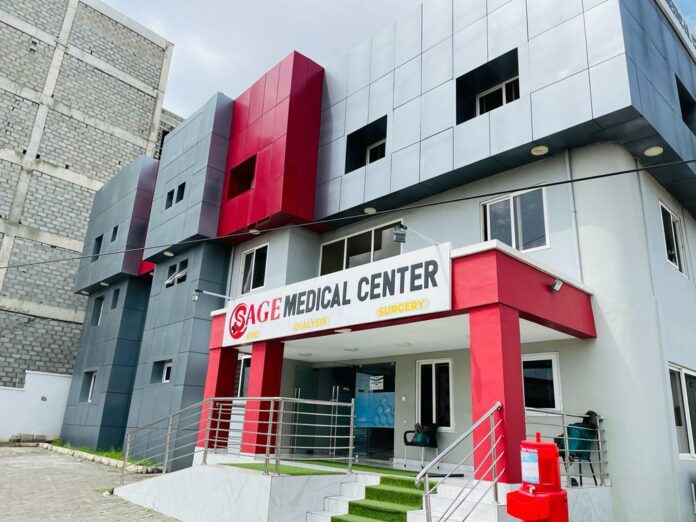|
Getting your Trinity Audio player ready...
|
Dr. Grace Ayensu-Danquah (MD, MPH, FGCPS, FICS, FACS) is the main opposition National Democratic Congress’ parliamentary candidate for Essikado-Ketan, Western Region, in next year’s 2024 general elections.
She made an initial attempt at winning the seat in the 2020 general elections.
She is a gender advocate, humanitarian surgeon, educationist, and philanthropist.
Dr. Ayensu-Danquah holds a Bachelor of Science degree in Biology from the University of Southern California in Los Angeles and a Medical Degree from the University of Wisconsin in Madison.
The double boarded-certified surgeon also holds a Masters degree in Public Health from the Johns Hopkins University in Maryland.
She also worked in private practice in the United States and holds licenses to practice in California and Michigan.
The medical expert is a fellow of both the American College of Surgeons and Ghana College of Physicians and Surgeons.
The member of the Ghana FDA Advisory Team for Vaccines and Biological products is also a board member of Days for Girls International Ghana.
Upon her return to Ghana, she helped establish Sage Medical Center to help brings respite to kidney patients upon noticing the gap in dialysis care.
Her modern state-of-the-art medical centre uses cutting-edge technology and equipment that facilitate pin-point diagnostic accuracy, as well as the effective treatment and management of all kidney problems.
Dr Ayensu-Danquah empathises with the current plight of kidney failure patients and believes that one of the solutions to the dire problem is the need for the government to remove tariffs on consumable imports so that more can be shipped into the country for the benefit of renal patients at an affordable price, as the price of consumables is tied to the dollar rate.

She also proposes that the National Health Insurance Scheme cover dialysis procedures as well as the treatment for kidney patients in Ghana and also allow them to, perhaps, make part payment as co-pay.
Dr Ayensu-Danquah, who is passionate about serving, uses her private medical centre to help kidney patients in whatever way she can.
In line with her medical philanthropy, Dr Ayensu-Danquah’s NGO provides free medical supplies and equipment to clinics and hospitals in rural areas.
Though a private hospital, Dr Ayensu-Danquah, who is also a Professor of Medicine at the Center for Global Surgery at the University of Utah in the United States as well as a lecturer at the Cape Coast University Medical School, is well aware of the devastating impact kidney disease has on poor patients in a third world country like ours.
Dr Ayensu-Danquah’s Sage Medical Centre, located at 24 Boundary Road, East Legon, opposite Ampomah Hotel, has envisioned to bring kidney care to the doorstep of all Ghanaians, irrespective of one’s financial standing, as she foresees the cost of dialysis skyrocketing in the near future.
Kidney failure prevalence and dialysis cost in Ghana
According to PMC PubMed Central, the prevalence of Chronic Kidney Disease (CKD) — reduced function of the kidneys — is estimated to be between 10 and 13% globally and 13.9% in sub-Saharan Africa.
In Ghana, CKD prevalence has been estimated to be about 13.3%.
Since the disease is cuurently not covered by the NHIS, patients in Ghana are left to their own fate and devices.
Those who cannot afford dialysis (the medical procedure through which waste fluids are removed from the body due to, either the abated ability or absolute inability of the kidneys to naturally perform that function), succumb fast, unfortuantely, while others resort to herbal remedies which could be counterproductive.
For those who get lucky with some financial help, they necessarily must dole out huge sums, either once, twice or thrice a week — depending on the gravity of the damage done to their kidneys — for dialysis.
Dialysis is a must for kidney patients. Without it, the consequences are gloomy and fatal.
The cost involved, however, is burdensome.
The issue gained some well-deserved media attention recently during a protest march against the government in Accra.
A young hysterical lady, in a melodramatic manner, as though possessed by the angry souls of all the deceased CKD patients, frontally confronted the phalanx of police officers who barricaded the road to the Jubilee House, so as to prevent the protesters from gaining access to the presidency, with stories about how a young boy died from the disease as a result of his family’s inability to pay for dialysis at the Korle Bu Teaching Hospital.
Subsequently, the hospital posted a notice announcing a 100 per cent increase in the cost of dialysis from GH¢380 to GH¢765.42.
Mr Mustapha Salifu, the Public Relations Officer for KBTH, explained in media interviews that the hike is attributable to elevated taxes on medical supplies and import duties.
He emphasised that the price of GH¢765.42 was a necessary adjustment to cover the facility’s operational expenses.
Mr Salifu noted that when considering the actual cost, it would be closer to GH¢850, but certain considerations led to the lower proposed amount.
He clarified that the government had previously granted tax exemptions to the hospital, which allowed them to offer the treatment at the initial GH¢380 rate.
However, these exemptions were no longer applicable as of last year, prompting the need for the price increase, he domplained.
According to him, the intention behind the cost hike was not profit-driven but aimed at sustaining the hospital’s ability to provide high-quality services to patients.
He warned that without the increase, the hospital might have to suspend the dialysis unit in the near future.
In a later statement, however, the management of the hospital clarified that the new rate was subject to parliamentary approval.
Until then, the old rate holds.
Source: Daily Mail GH





